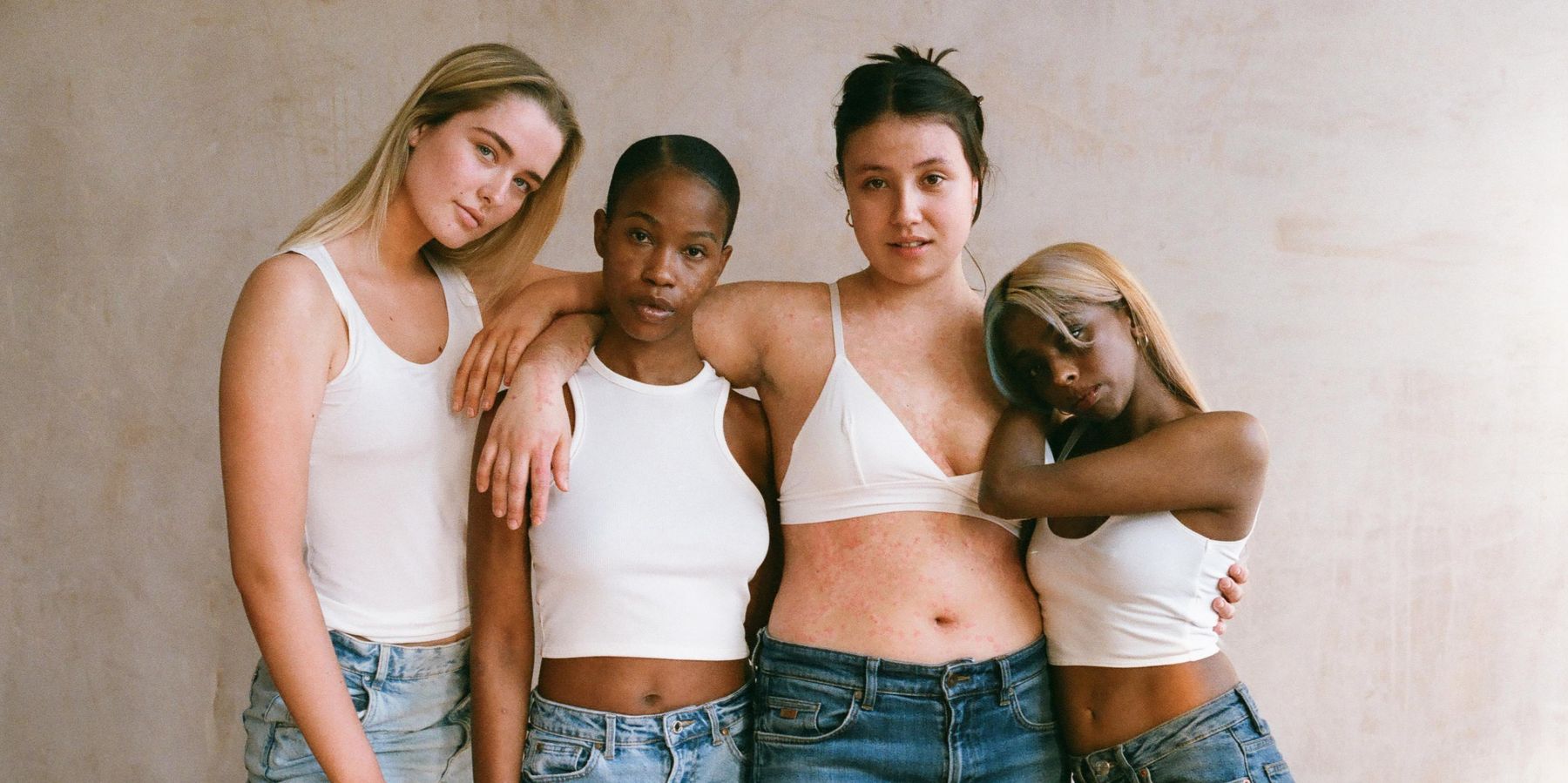
This article is a sponsored collaboration between Bodewell and PAPER
For people living with skin conditions like eczema and psoriasis (and compromised skin), the journey to self-improvement and acceptance can be a long and arduous process. In the US alone, eight million people have been diagnosed with psoriasis, while over 30 million have eczema.
But even though these skin conditions (there is still no known cure) are relatively common, the psychological effects take a considerable toll on mental health. According to a National Eczema Association study, participants were three times at a higher risk for depression or anxiety, while 50% said their conditions interfere with their social life and intimate relationships.
When it comes to skincare brands that are focused on helping people who suffer from these skin conditions, they are underwhelming both from a product perspective, and a human empathy perspective.
Bodewell, a medicated skincare company tailored to people with eczema, psoriasis and sensitive skin, has set out to change this status quo. Its ultimate mission is to de-stigmatize skin conditions and build a supportive community around those on their healing journey, which is often inextricably linked to self-love and self-worth.
The brand's co-founder, Jamie Duff, suffered from severe eczema for 30 years and launched Bodewell as an answer to the struggles he faced. Over the years he explored holistic treatments such as vedic meditation, yoga, yogic breathing and cognitive behavior therapy that all take a more human-centered approach to the inner and outer effects of the origins of these inflammatory skin conditions. He thinks this approach can also benefit others.
More directly, Bodewell has developed (alongside CPG powerhouse P&G) treatments that they refer to as "next generation medicated skincare": plant-technology powered, scientifically-tested and proven, unique anti-inflammatory mechanism of action that hydrates, stops itching, repairs skin barrier and prevents future flare-ups. There's also a personalized digital and mobile program that supplements the products and supports customers through their journey. This program draws on co-founder Jamie's own experiences.
To capture the overlooked beauty of chronic skin sufferers, Bodewell launched an ongoing portrait series named Skincare For the Rest of Us, where it highlights real sufferers on their own terms. In this special editorial feature shot by Issey Gladston (an eczema sufferer herself) the portraits celebrate the scars as a visual tale of strength, perseverance, overcoming adversity and embracing self-love.
Aramide
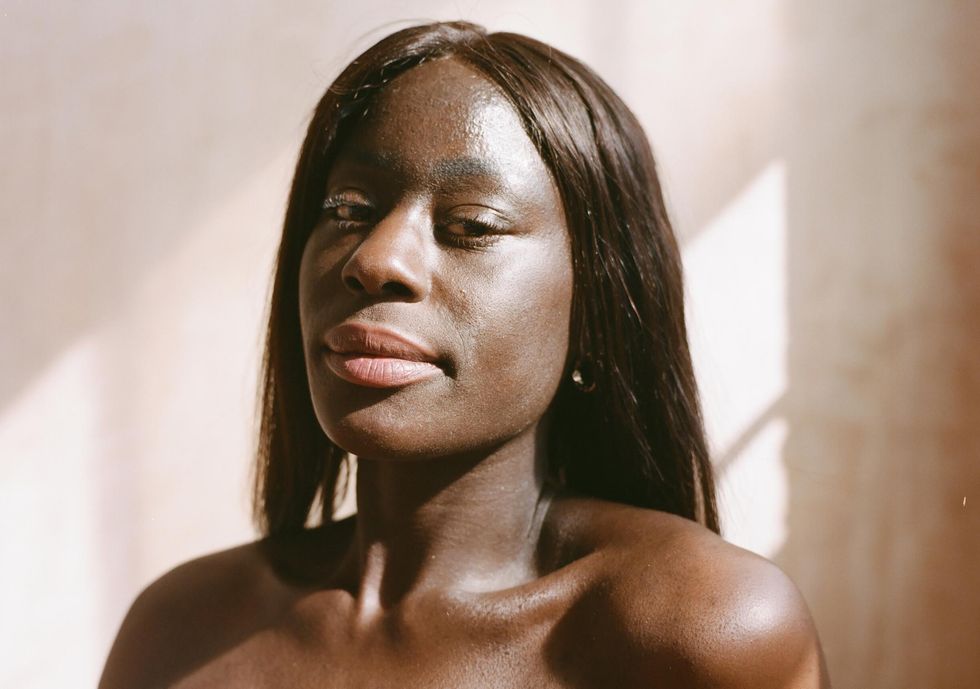
What's something people who have never experienced your skin condition be surprised to know or don't know about what it's like to live with it?
Human beings are preconditioned to prefer that which is aesthetically pleasing, so naturally a skin condition attracts attention because it looks different. I think a lot of people are surprised when they realize it can be quite sore/painful and can even impact common everyday tasks like sleep. My own personal experience has reminded me that skin is not an aesthetic. Skin is for function — touch, temperature regulation, process pain. Our largest organ keeps all our other organs safe.
How were you able to come to terms with your condition and overcome any obstacles you've had to endure?
Self acceptance. Accepting how you have been created and navigating it to the best of your ability is the first step to overcoming. There is a silver lining in everything. My skin condition realigned me to my true creative purpose — modeling and painting.
How has Bodewell helped you on your journey to self-improvement and acceptance?
I have been campaigning for brands to shoot atopic skin since 2017. It was important for me that brands — particularly dry skin and atopic skin brands who include their target market in their modeling campaigns — understand our lived experiences and not sell unrealistic dreams of perfect skin to those living with chronic skin conditions. Bodewell has championed skin representation and created opportunities for me as a skin model. My confidence goes up every time I shoot with Bodewell and I feel motivated to challenge other brands to shoot and include atopic skin.
Brisèis
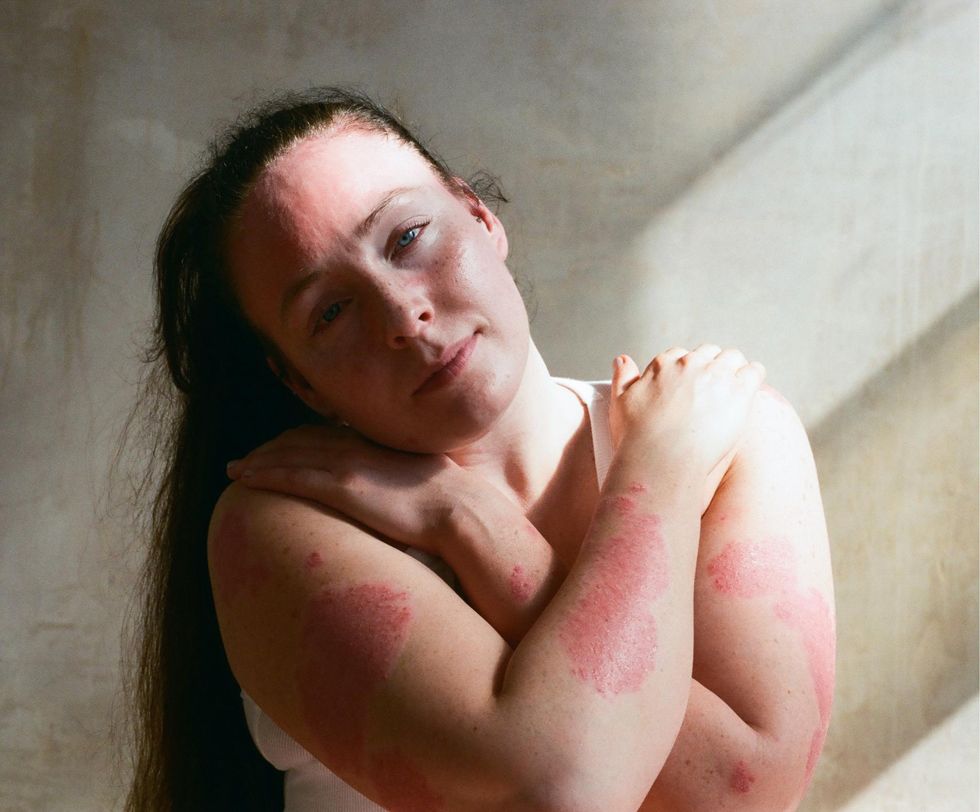
What's something people who have never experienced your skin condition would be surprised to know or don't know about what it's like to live with it?
I think a lot of people would be surprised to know psoriasis is not contagious in any way. Living with my plaque psoriasis can be very sore and itchy, but it's taught me a lot of self-confidence.
How were you able to come to terms with your condition and overcome any obstacles you've had to endure?
Instagram helped me a LOT with coming to terms with my skin condition. My skin progressed slowly over many years, but with it my confidence also grew. In regards to obstacles, I've had to get used to my skin getting more sore and flaky over the last couple of years but it's something I am learning to come to terms with.
How has Bodewell helped you on your journey to self-improvement and acceptance?
Bodewell has helped me massively to embrace my skin and also to try new things, such as the photo shoot, that would normally be so outside of my comfort zone. They're an amazing company that genuinely care and really help me and the other girls to embrace our skin.
Michelle
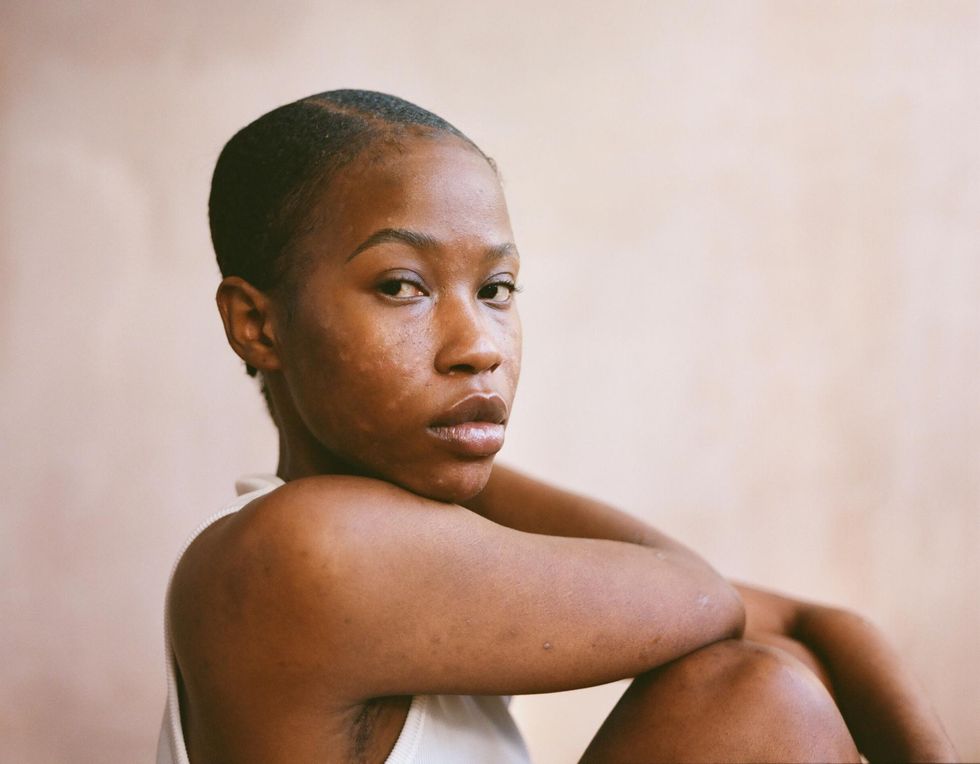
What's something people who have never experienced your skin condition would be surprised to know or don't know about what it's like to live with it?
The fact that my skin reproduces at the speed it does! I can go to sleep with a clear face and wake up a few hours later to new patches out of nowhere! You never know what you will get with psoriasis. Another classic favorite of mine is having a brush and dustpan on standby for the morning when it's time to get all my fallen skin from scratching all night off the bed and off the floor.
How were you able to come to terms with your condition and overcome any obstacles you've had to endure?
I got to a point where hiding it was no longer an option — it was draining physically and mentally. I put 100% into hiding something about myself simply because I didn't want to make other people uncomfortable, but I finally got to a point where I needed my comfort to be more important than those of other people. I needed to put myself first for once.
How has Bodewell helped you on your journey to self-improvement and acceptance?
Bodewell helped me to let go of the fear of not being on medication. I felt dependent on prescription medication. If I didn't have it, that would mean a flare up and there was no way I could allow that. I only ever truly accepted the Michelle who would occasionally have clear skin from time to time but flare-up Michelle was difficult to love. Bodewell opened my eyes to different ways of healing my skin. I no longer feel dependent on medication and I'm happy with myself with or without a flare. I now understand that I'm on a journey with my condition and it's not one I need to rush.
Beth
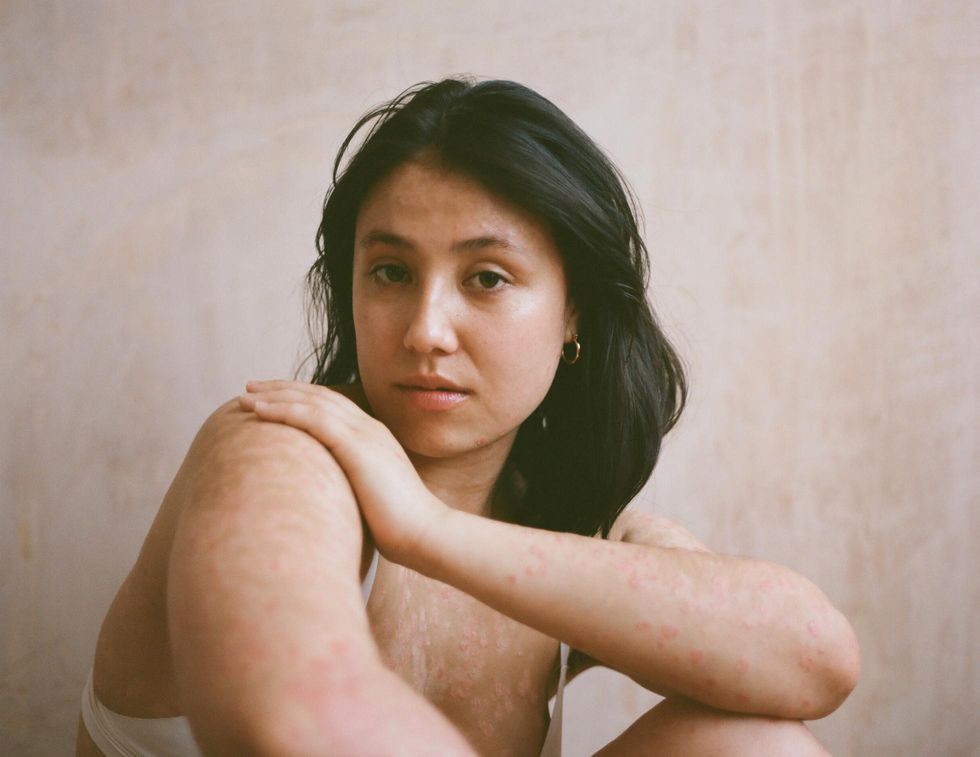
What's something people who have never experienced your skin condition would be surprised to know or don't know about what it's like to live with it?
It is surprisingly beautiful, the way in which it inhabits certain areas of the skin, in the most fascinating accumulation of patterns is quite amazing.
How were you able to come to terms with your condition and overcome any obstacles you've had to endure?
Self-acceptance and patience. It can be quite a debilitating condition to deal with. However, learning the skill of self-acceptance and love for oneself helps to overcome those debilitating obstacles.
How has Bodewell helped you on your journey to self-improvement and acceptance?
Bodewell offered me a community where I felt safe to discuss my skin condition and tips on living with a skin condition. They gave me modeling opportunities which helped with my self-confidence and to become an active skin campaigner.
Millie
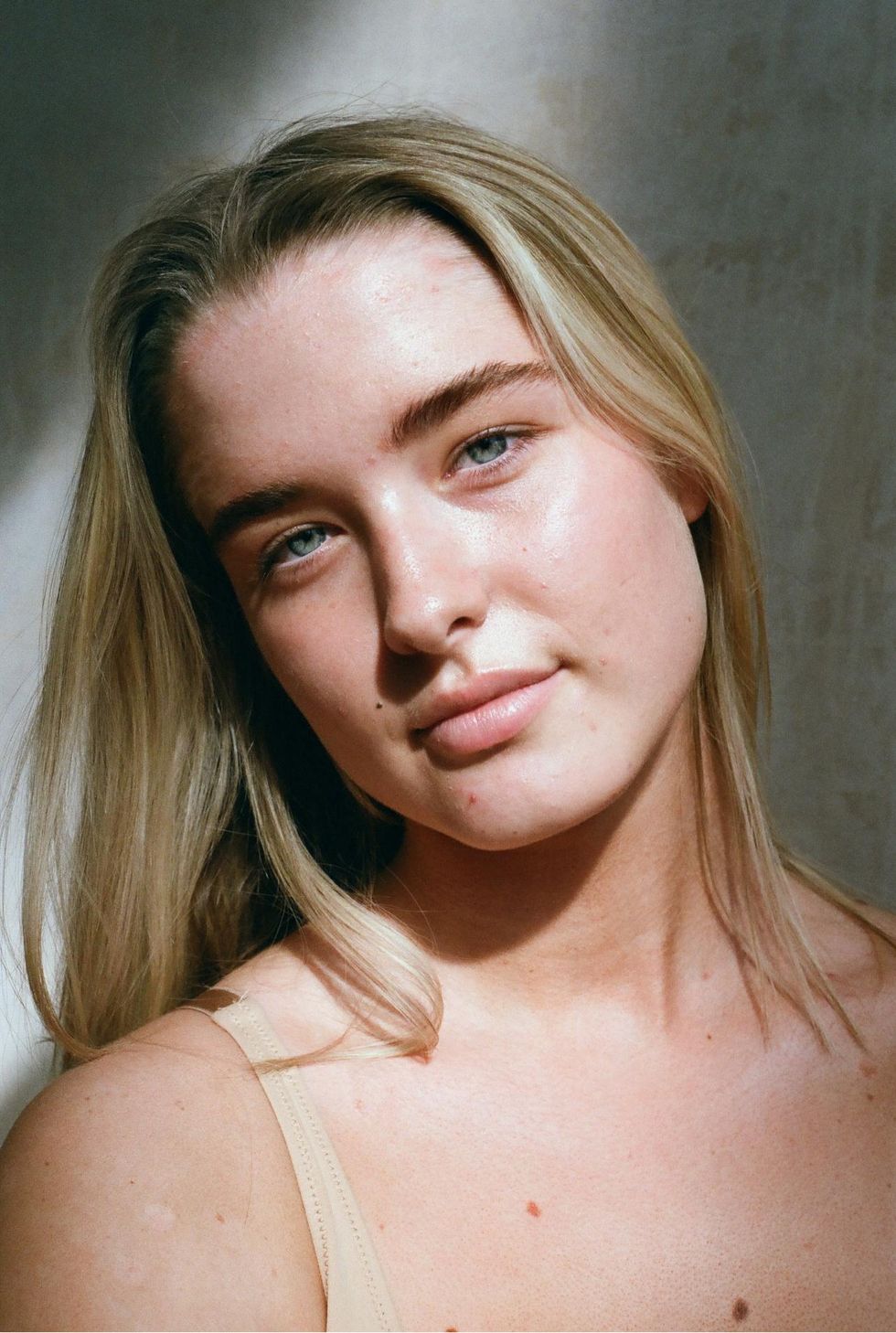
What's something people who have never experienced your skin condition be surprised to know or don't know about what it's like to live with it?
Surprisingly, my confidence in my body image, character and relationships with others has really been amplified whilst going through my journey with psoriasis. We usually hear stories relating to the negatives to having a skin condition which is just as important, however, my perspective on other aspects of my life has really changed for the better!
How were you able to come to terms with your condition and overcome any obstacles you've had to endure?
Growing up since the age of 9 with psoriasis being an extremely sporty young girl, I've almost been forced into dealing with my skin, but it wasn't until lockdown 2020 (the time of my worst flare up) that I was literally left to do nothing but look at myself daily and learn to accept, love and nurture my skin with every itch of itself.
How has Bodewell helped you on your journey to self-improvement and acceptance?
Seeing the large community that was built by so many inspiring people be celebrated by a brand like Bodewell, particularly having all-women shoots, is extremely refreshing and comforting. The creams and serums have become staples in my regime and I've definitely stepped up my skincare game to the next level. Their products are not only amazing for me, but they truly reach such a wide audience which I know will continue to grow into a wholesome and well-loved brand.
Karishma
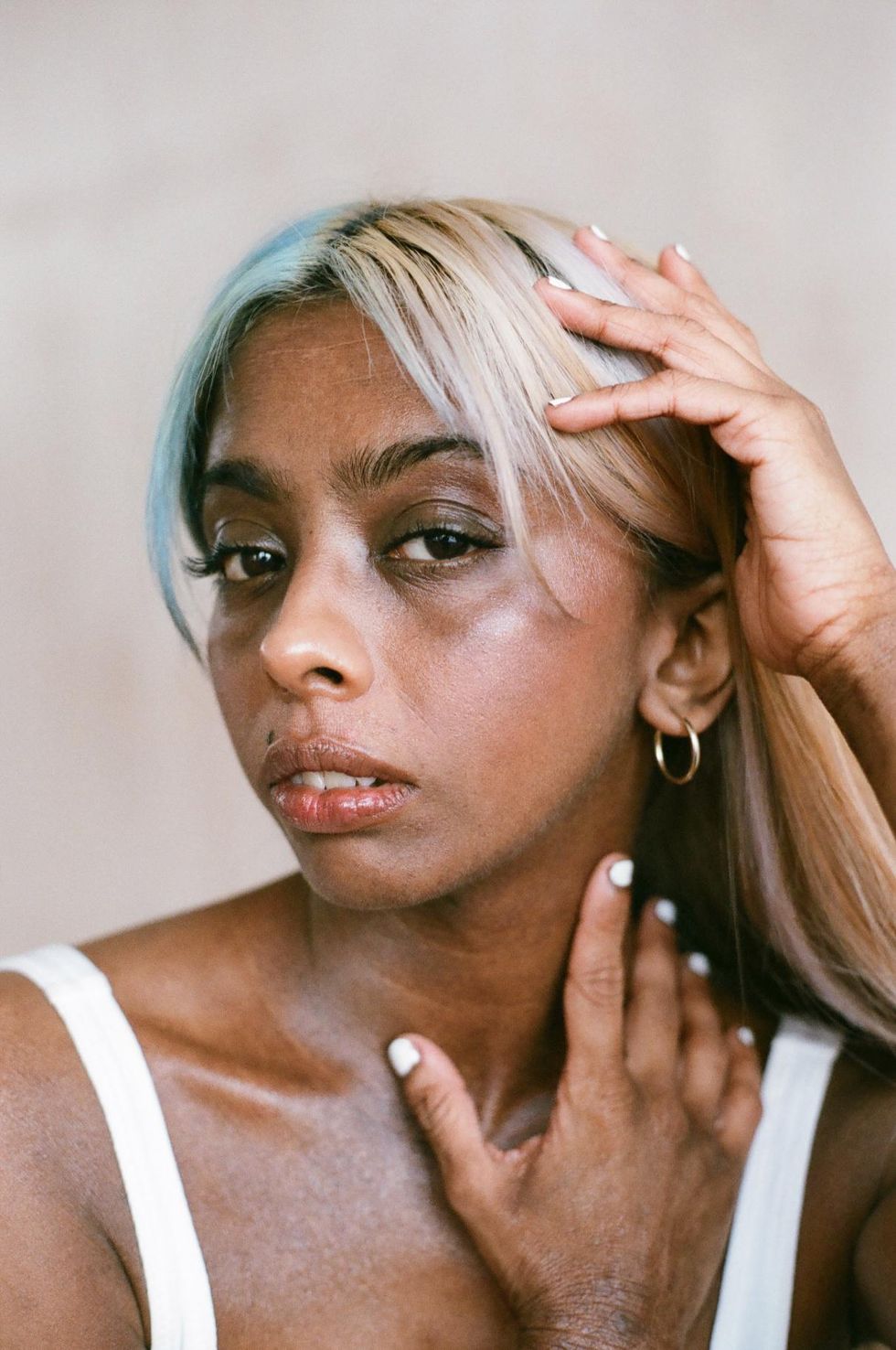
What's something people who have never experienced your skin condition would be surprised to know or don't know about what it's like to live with it?
I think the one thing I'd like people to know who have never had to deal with eczema is that it is not just a dry skin condition. It's so much more than that. It's debilitating and, depending on the severity, life altering. We have to cater our whole lives around our skin. It's not something as simple as making sure you've put moisturizer on for the day. It's the constant itching that never ends and feels like you can never do enough. It's the painful tears and cracks as our skin is so sensitive that just a touch will have it crumble. It's always worrying about skin infections due to this. It's being terrified to have a shower because the water feels like knives on our skin. It's always having to worry about the weather conditions and if we've prepped our skin well enough including having to make sure we have all our cream and medicines in our bag if we know we'll be out of the house for longer than 5 minutes. I could go on and on but I need people to know that just applying e45 isn't the solution to our problem.
How were you able to come to terms with your condition and overcome any obstacles you've had to endure?
I was always tired of not seeing the representation we as a community deserve and pushing for more inclusivity, especially as a dark skinned South Asian woman, is something that I am very passionate about and always pushing for in all sectors. So my support system, who come in the form of my best friends and the online eczema and TSW community, really gave me the confidence to put myself out there especially on social media where your appearance is held to such a high unrealistic standard and has made me realize that beauty will forever and always be more than skin deep and made me see real beauty that isn't just on the outside.
How has Bodewell helped you on your journey to self-improvement and acceptance?
I am so grateful for platforms like Bodewell, who not only provide products for people which chronic skin conditions, but also allow us to have a voice and spread awareness. Being able to not only have your say, but also listen and hear others who you can relate to has massively helped. Knowing that even though we still have a long way to go with gaining social acceptance and inclusivity, they are helping pave the way for so many of us warriors and are helping make a happy healthy change in the way we see beauty and skin conditions.
Photography: Issey Gladston
Related Articles Around the Web
MORE ON PAPER
Music
We Partied With KATSEYE and HUNTR/X at UMG's Grammys Party
Story and photography by Vincenzo Dimino